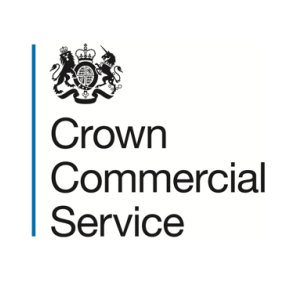
1. Please tell us about Crown Commercial Service and your role within the organisation.
The fleet team works with over 3,000 public sector customers whose combined fleet comprises around 125,000 vehicles. Over 30,000 vehicles are acquired through our agreements each year, in addition to the complementary services needed to support them.
My role is to determine leading commercial strategy across a range of products and services. I then translate this into commercial agreements with benefits for the public purse.
Our public sector fleets have a range of outputs required for their services: from vehicles that help deliver frontline emergency services, to a local government organisation who need support in areas such as implementing staff benefit schemes, such as green car salary sacrifice.
Right now we’re also empowering the public sector to achieve their carbon reduction goals through ultra-low emission and electric vehicles and implementation of charging infrastructure.
2. What is CCS doing to make it easier for customers to use agreements? How have you listened to customers?
CCS agreements have strategic importance across the public sector. We take the responsibility to really own and understand our customers, markets and commercial models.
A pivotal aim of my work is supporting public sector fleets in their transition to ultra-low emission vehicles and the charging infrastructure that will be required to support them. We want to help ensure transport plays a key role in achieving government targets for carbon reduction. It’s a challenge, but also a great opportunity.
For specialist vehicle fleets, the shift to sustainable solutions will prove even more challenging and could require a full review of operational requirements and how they’re delivered.
We’re providing support to all our customers to help them with their mobility strategies and carbon reduction plans. In September we launched our new carbon net zero funding and grants webpage.
This brings all open grants and funding opportunities for net zero projects together in one place. The webpage will support public sector organisations to review available funding streams and providers. They can then engage with CCS to understand available routes to market for projects, and complementary agreements.
3. What are you and your team working on at the moment?
It’s a really exciting time within the fleet group at CCS. The transition to electric vehicles is, understandably, the main focus for the industry.
We’ve seen a rise in public sector bodies using procurement to move to carbon net zero solutions. During 2020-21, ultra low emission vehicles accounted for 39% of all new vehicles procured by the public sector through our agreements. That number rose to 48% in 2021-22 and is already tracking at 51% for 2022-23.
CCS offers 36 commercial solutions in areas that will be key to accelerating the transition to net zero including fleet solutions. Across our fleet agreements we remain fully engaged with the market to enable us to stay abreast of best practice and future innovations.
We’re busy making sure that any new vehicle and service developments available in the UK can be accessed as soon as possible by our customers.
4. How are you and your team helping customers to make responsible decisions about sustainability and social value?
These days a successful transport management strategy needs to consider cost savings alongside social value, health and safety and environmental impact.
We’re giving our customers the flexibility to obtain more from their contracts and to see the bigger picture. For example, we’re building social value into our agreements through the requirement for all suppliers to sign up to Driving for Better Business. This is a government-backed National Highways initiative, which aims to help employers improve their employees’ driving practices and reduce work-related road risk.











